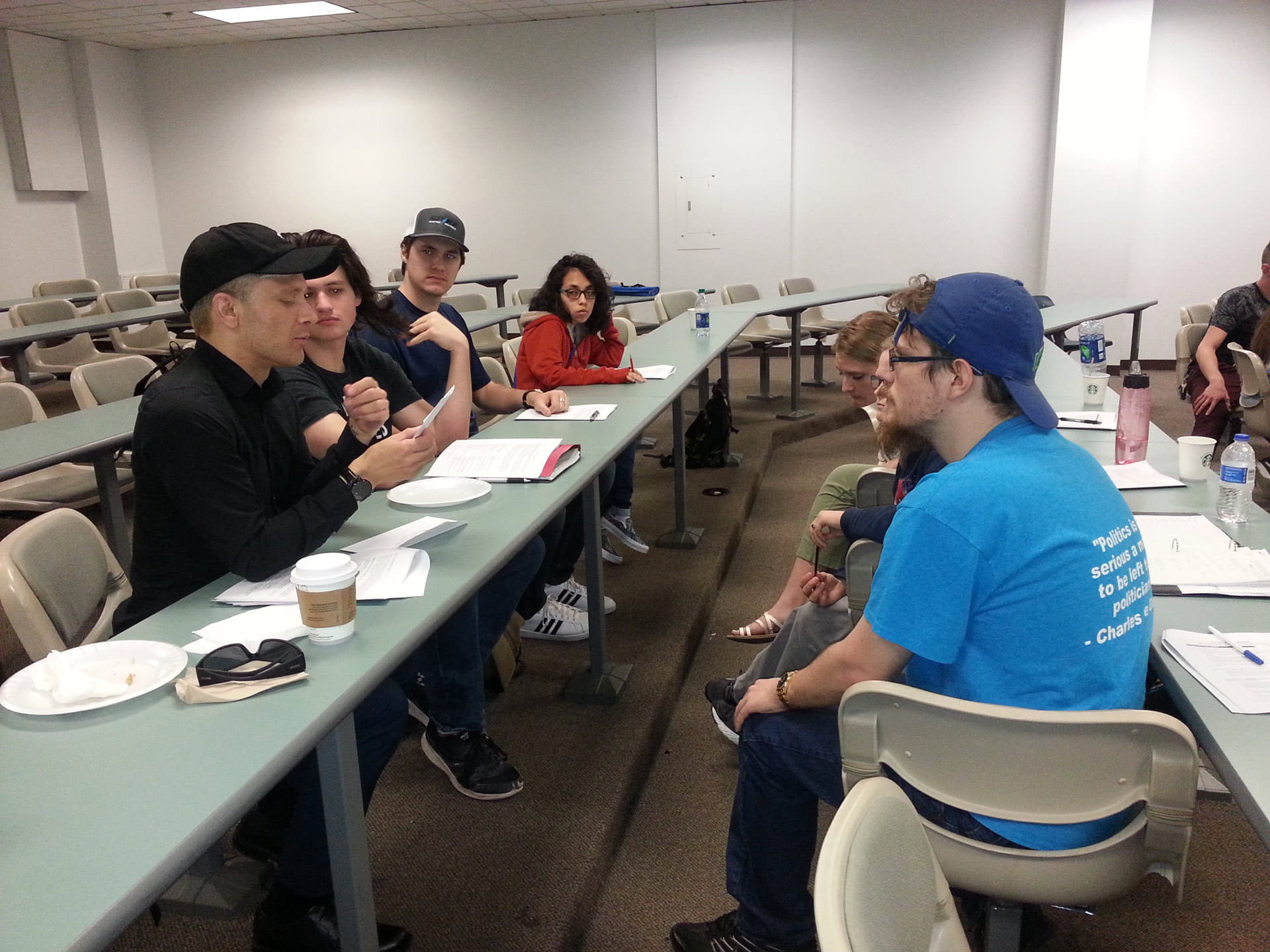UHCL students share the art of deliberative dialogue to gain peacemaking, diplomacy
skills
April 6, 2018 | UHCL Staff

In a democracy, decisions should be made by ordinary citizens who discuss and evaluate
issues. But often, said University of Houston-Clear Lake Assistant Professor of Political
Science Se-Hyoung Yi, conversations about public issues devolve into debates or arguments,
in which one side claims to know the answers to the issue and simply wants to win.
“That’s why we train students in deliberative dialogue, so that they can moderate
difficult topics that are key to contemporary democracy,” he said. A deliberative
dialogue event is scheduled for Thursday, April 19 at 4 p.m. in the Forest Room of
UHCL’s Bayou Building, 2700 Bay Area Blvd., Houston. The event is open to all undergraduate
students over all majors.
Yi said the deliberative dialogue movement began at UHCL last semester in collaboration
with his colleague, John J. Theis, a political science professor at Lone Star College-Kingwood.
“We trained 28 UHCL students to become moderators in a deliberative dialogue event
in March and about eight students are now prepared to be student facilitators at the
upcoming April event,” Yi said. “We will have eight to 10 small groups to deliberate
the issues.”
Yi said that the National Issues Forum Institute has published a series of guidebooks
of issues to help citizens deliberate together about how we should approach the issues.
“The issue we’ll discuss at our April event is immigration,” he said. “We are given
a number of facts about immigration, and then we will lay out three options and perspectives
to resolve the problem. During the training, students learned that each option has
promises and consequences. It’s not about choosing the right or the best option. It
is about deliberating and weighing the actions and drawbacks of each option and
find shared ground, even if perspectives are different.”
Yi said it’s important to distinguish the difference between deliberating and arguing.
“Why do we argue? To win, the other side has to lose. Each side argues that they
know the exact solution. But in deliberate dialogue, it’s understood that there is
no perfect solution to a problem, there is only an effort to understand the causes
of the problem.”
During the deliberative dialogue training, moderators-to-be are taught that each proposed
solution to a problem has its own problems, and that there are never simple answers.
“Instead of finding the best solution, as experts or academics would, ordinary citizens
must try to find a common ground on which they start working together despite their
differences,” Yi said. “Citizens present the issues from their own point of view,
not an expert’s point of view, and just learn to address concerns.”
Six-year U.S. Coast Guard veteran and sophomore criminology major Lesley Tribble said
that even in the military, she didn’t know so much could be achieved by using deliberative
dialogue. “When it’s done right, it’s astonishing,” she said. “Deliberative dialogue
is one of the only ways to completely decimate the divisiveness that is perpetuated
in our culture and in social media. This is the way to disassociate from your own
personal bias and see the other perspectives.”
Tribble participated in the March training event, and said that deliberative dialogue
techniques creates interaction on topics that people don’t want to talk about. “It
puts an eye-opening perspective on both sides, rather than being influenced by public
opinion,” she said. “I’ve always been called a ‘fence rider,’ and this is the perfect
forum for that. It de-personalizes the issue, so that you’re no longer attached to
your own beliefs. That’s pivotal. That can only come from listening to other people.”
Yi said that using deliberative dialogue tactics help democracy move forward. “This
is about finding out what an ordinary citizen can do about a problem,” he said. “We
learn that presenting both sides of an option for the purpose of winning is not a
solution, it just divides people. This way, we find shared ground and answers that
do not assume there is only one right way to do things.”
About the Author:
Recent entries by
October 18 2022
Better technology transforms campus safety: Police Chief demonstrates SafeZone to students
October 14 2022
Student's skill with drones takes chicken turtle research to new heights
October 11 2022
Planting event to help UHCL restore native plants to campus, support environmental sustainability







